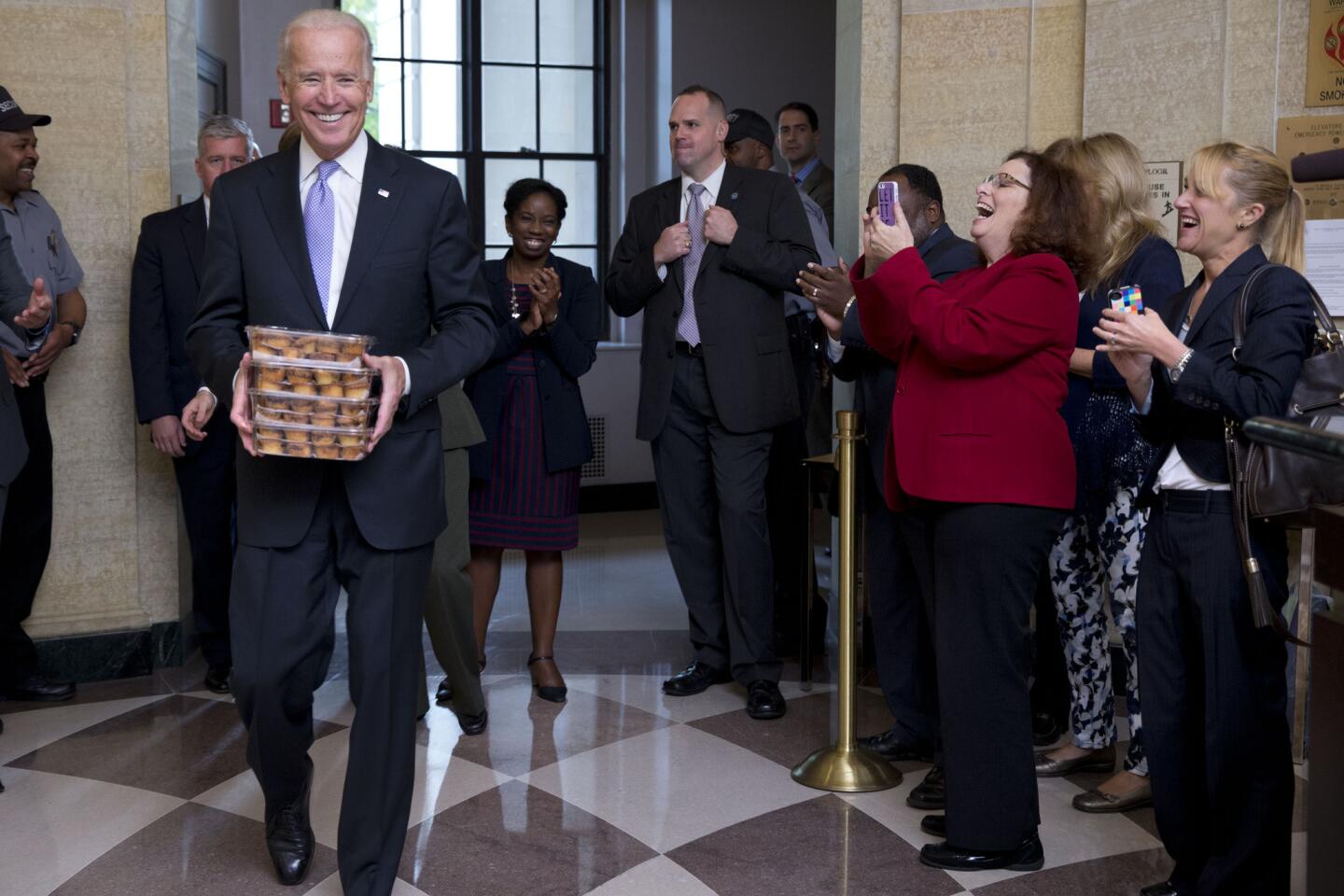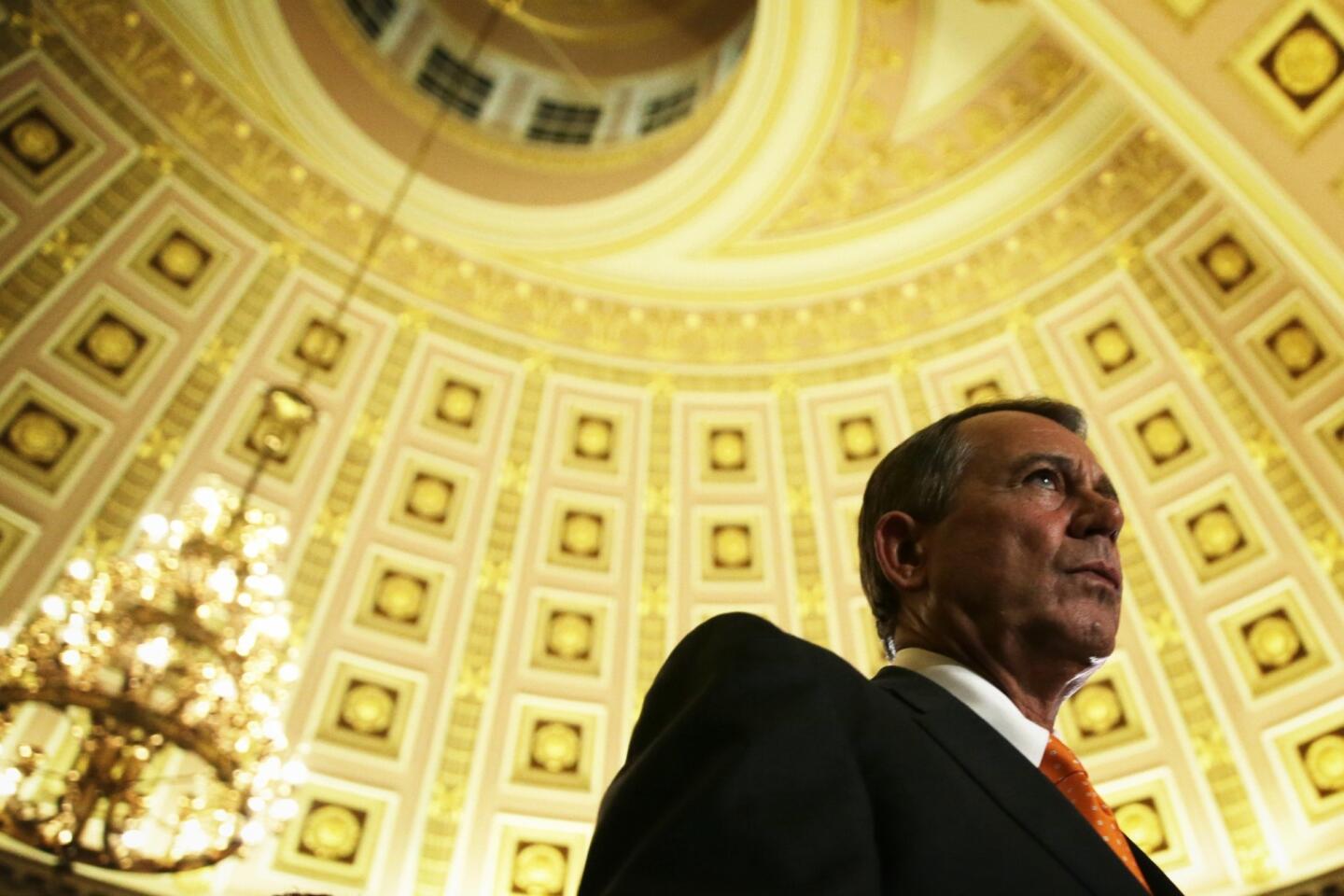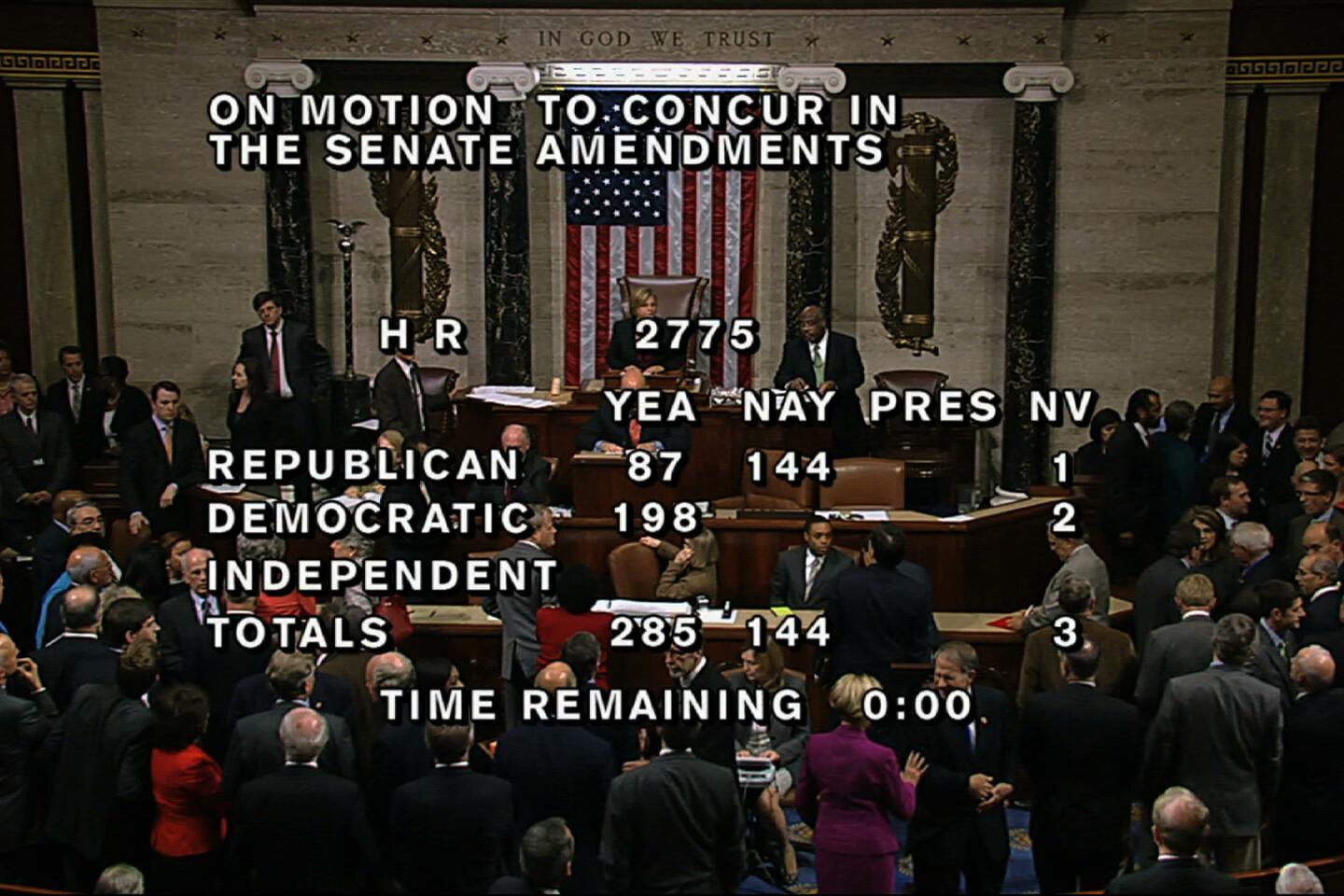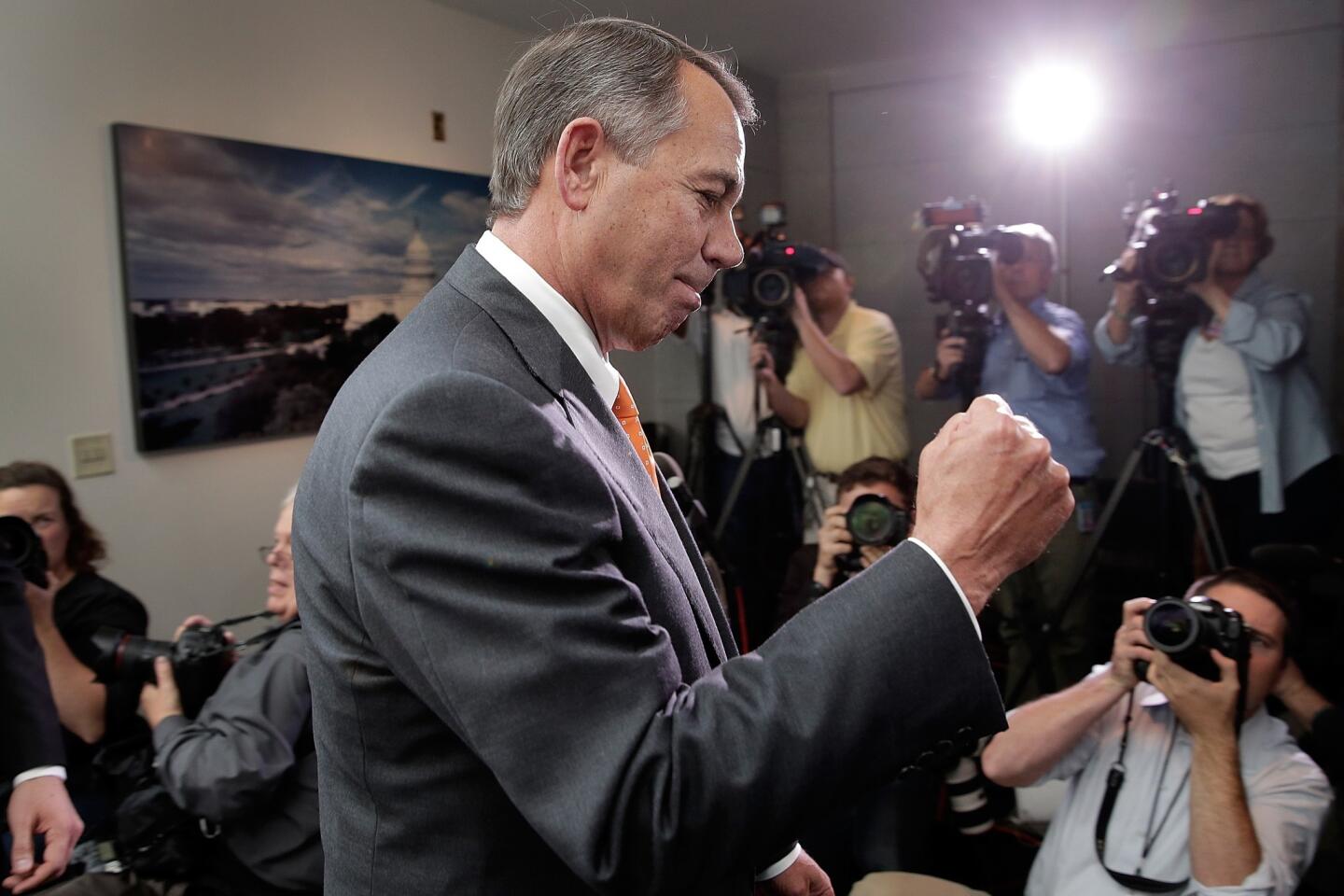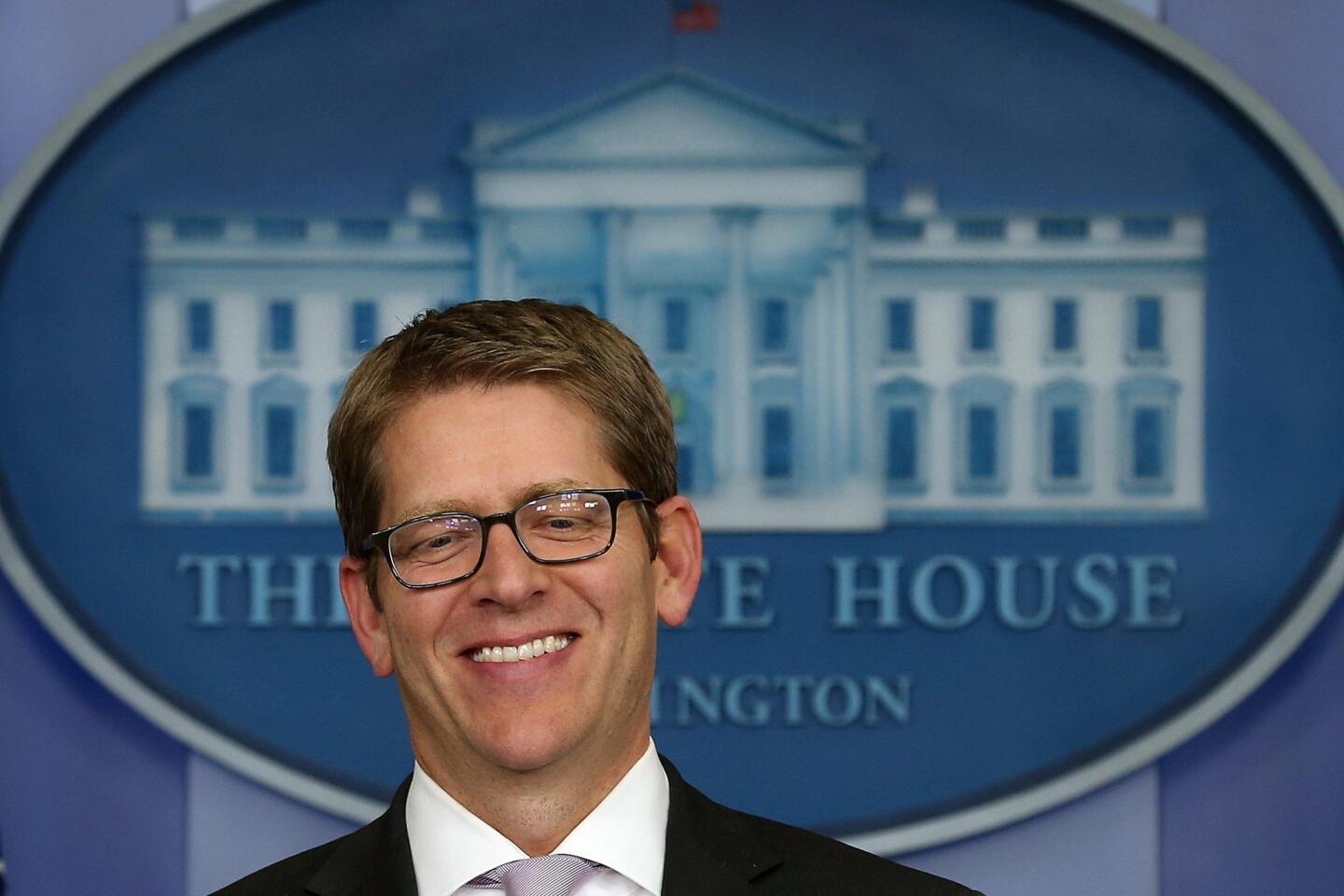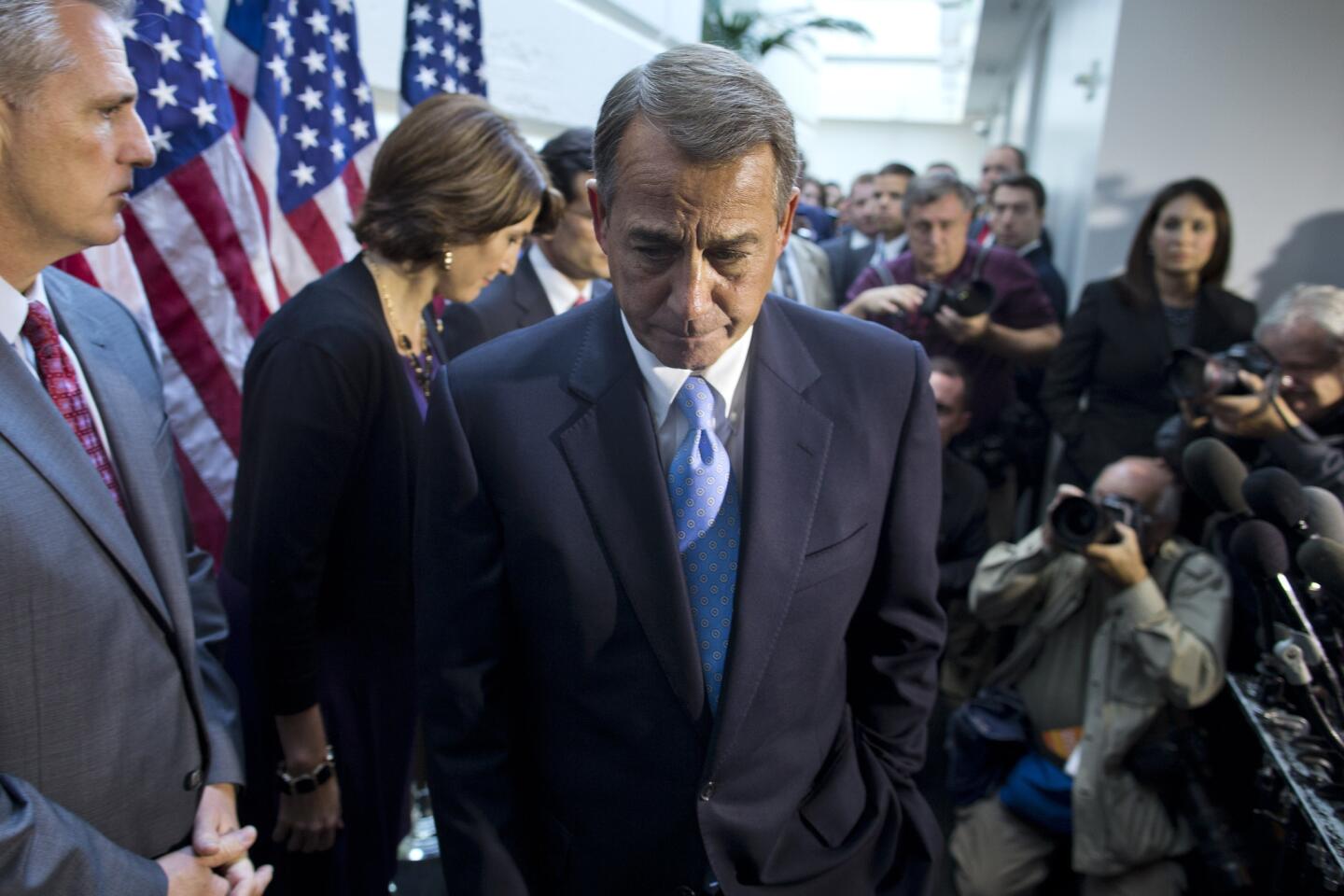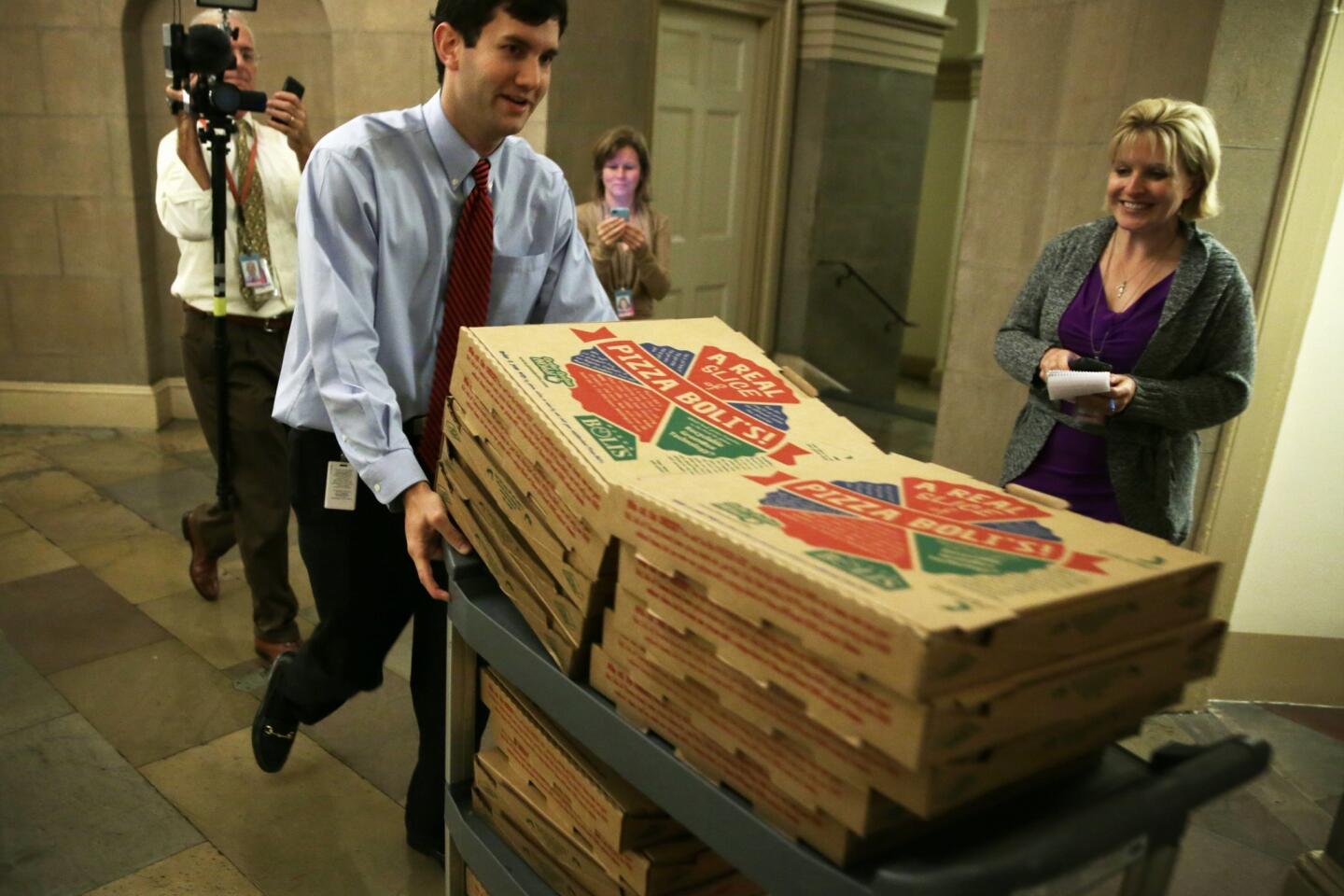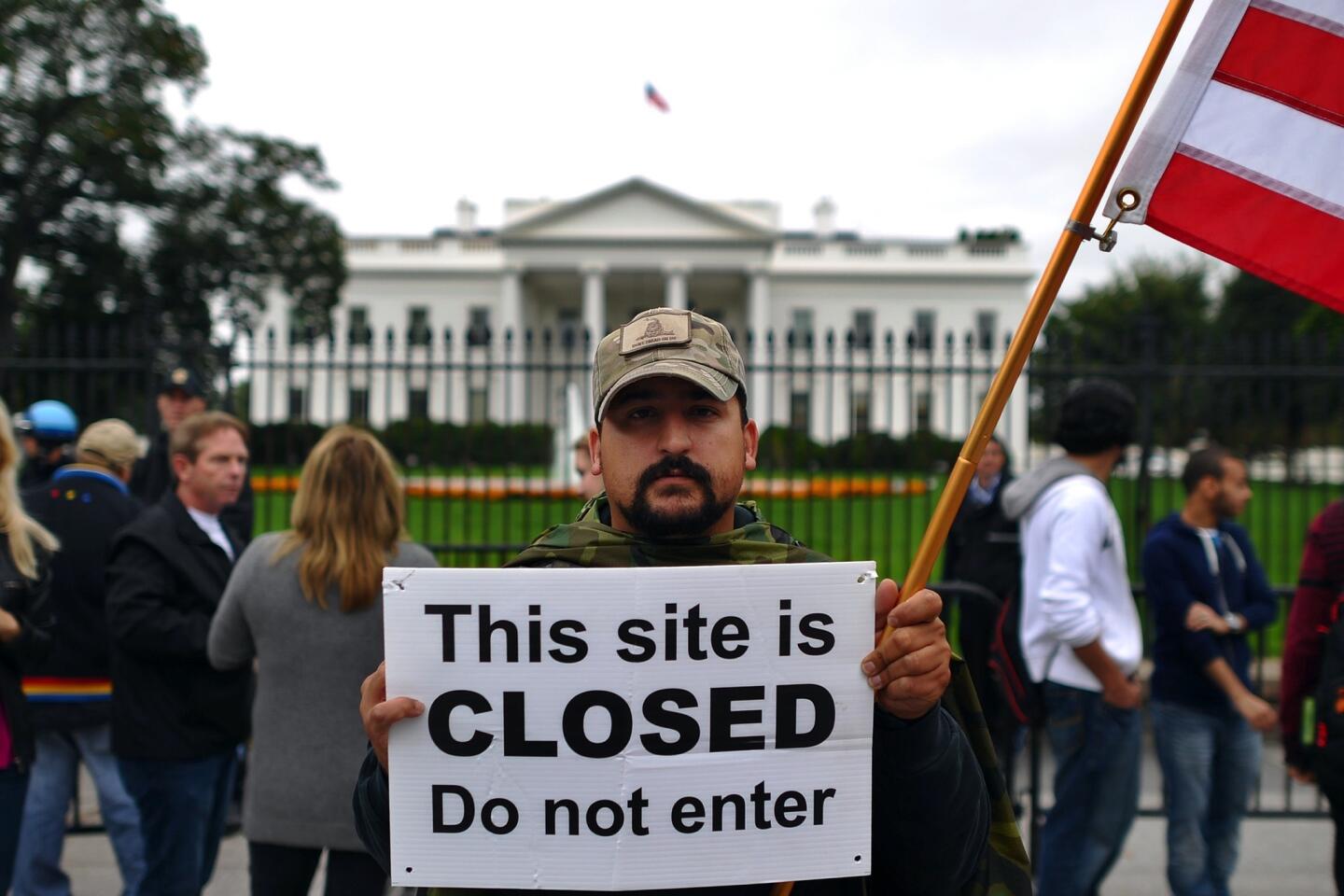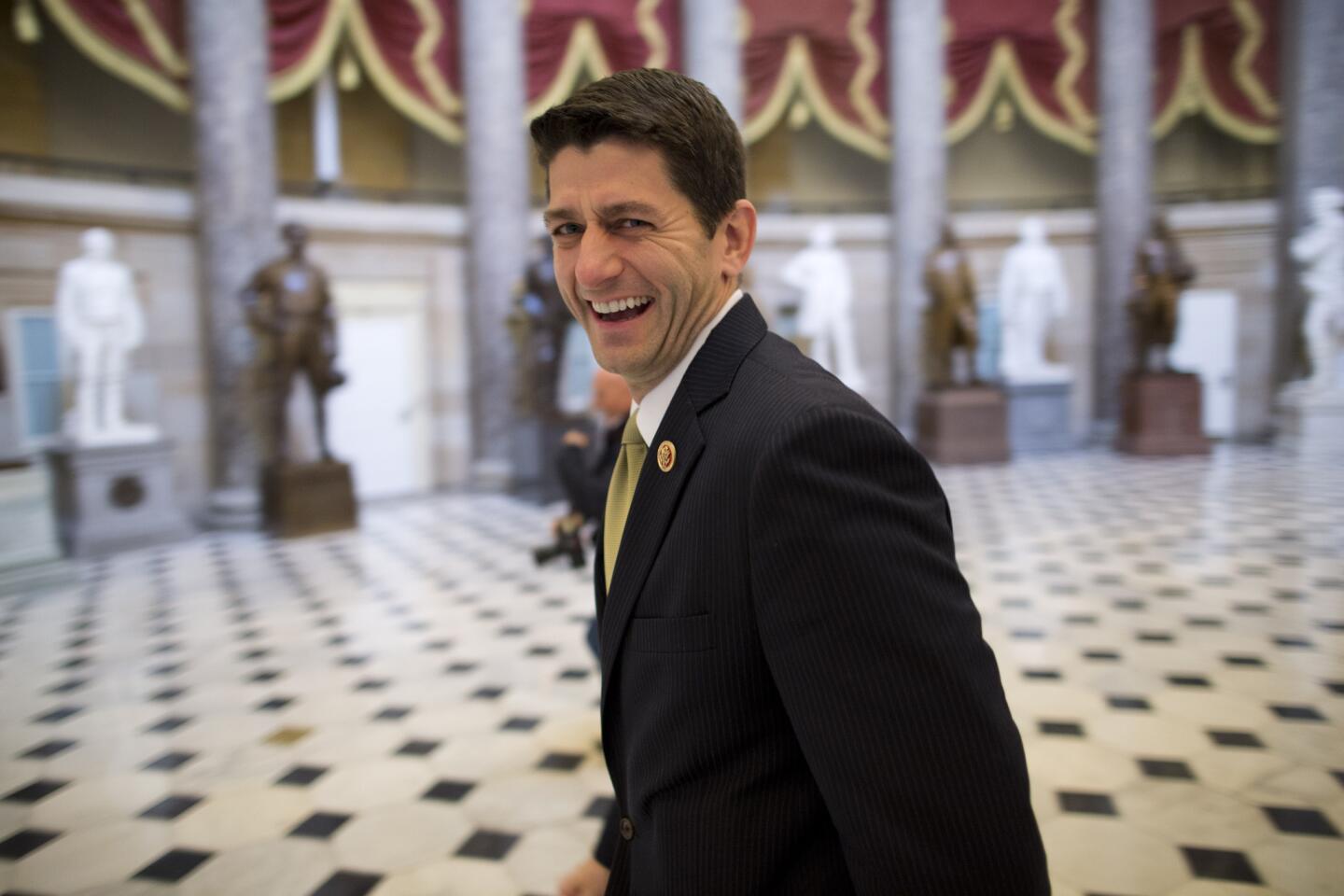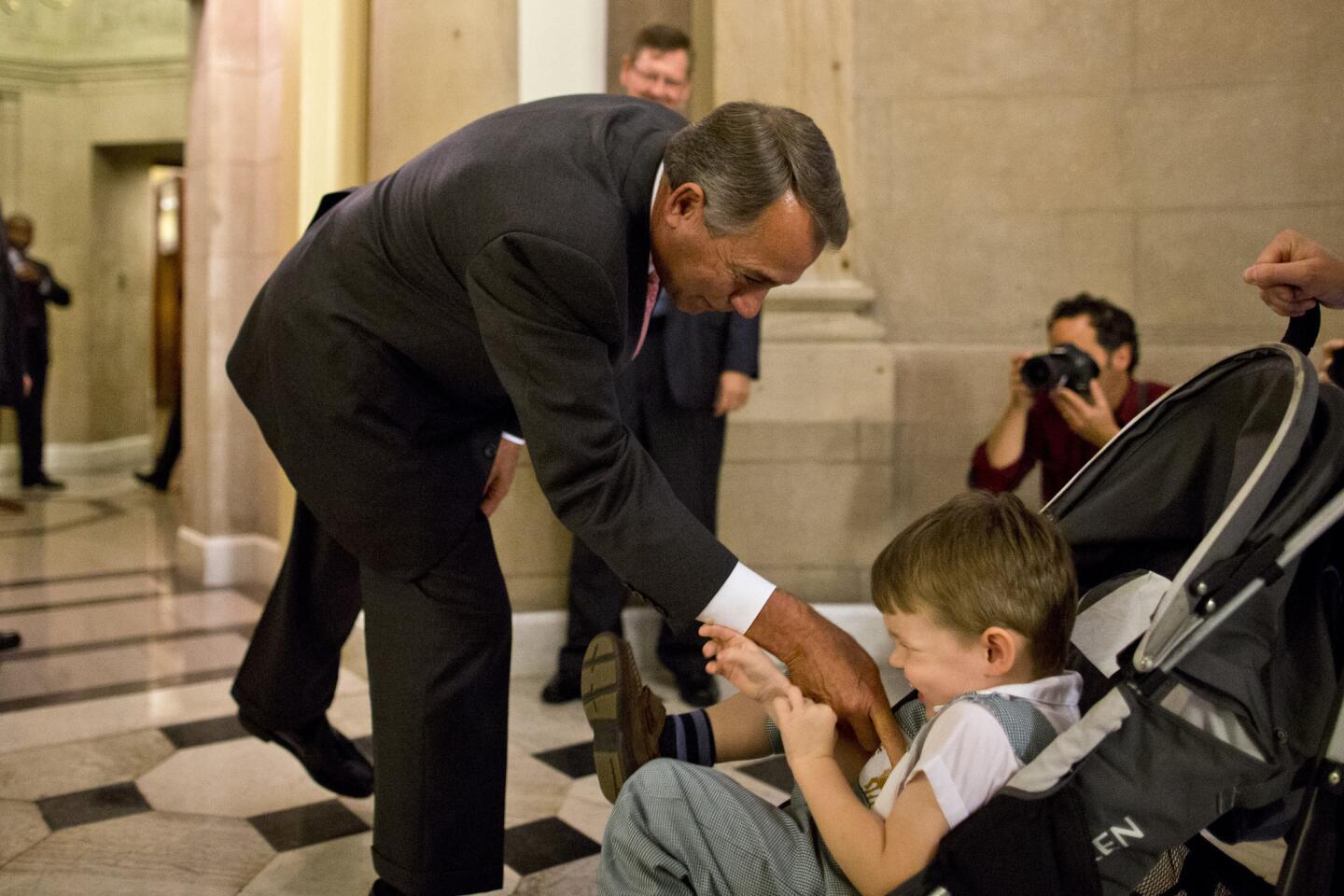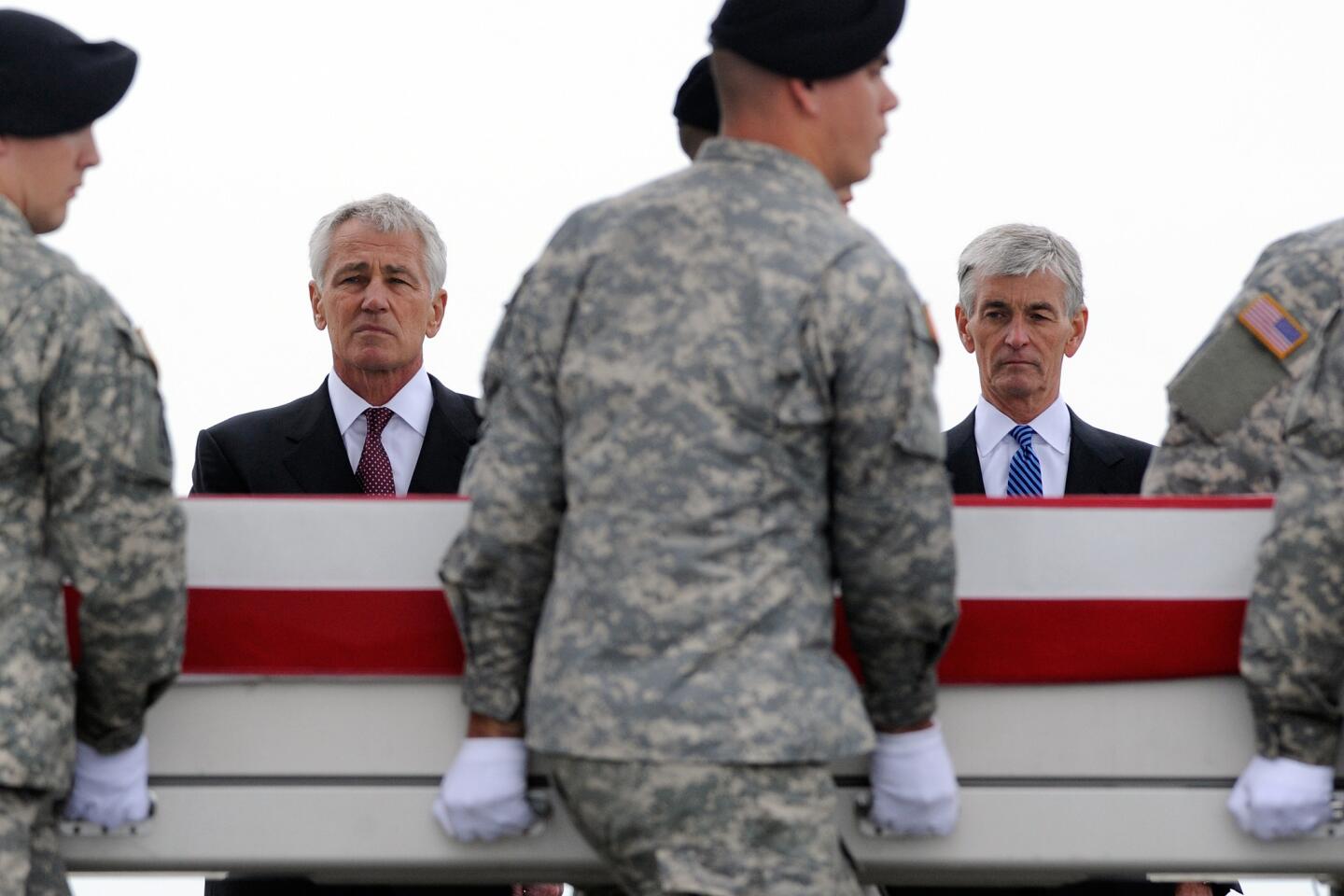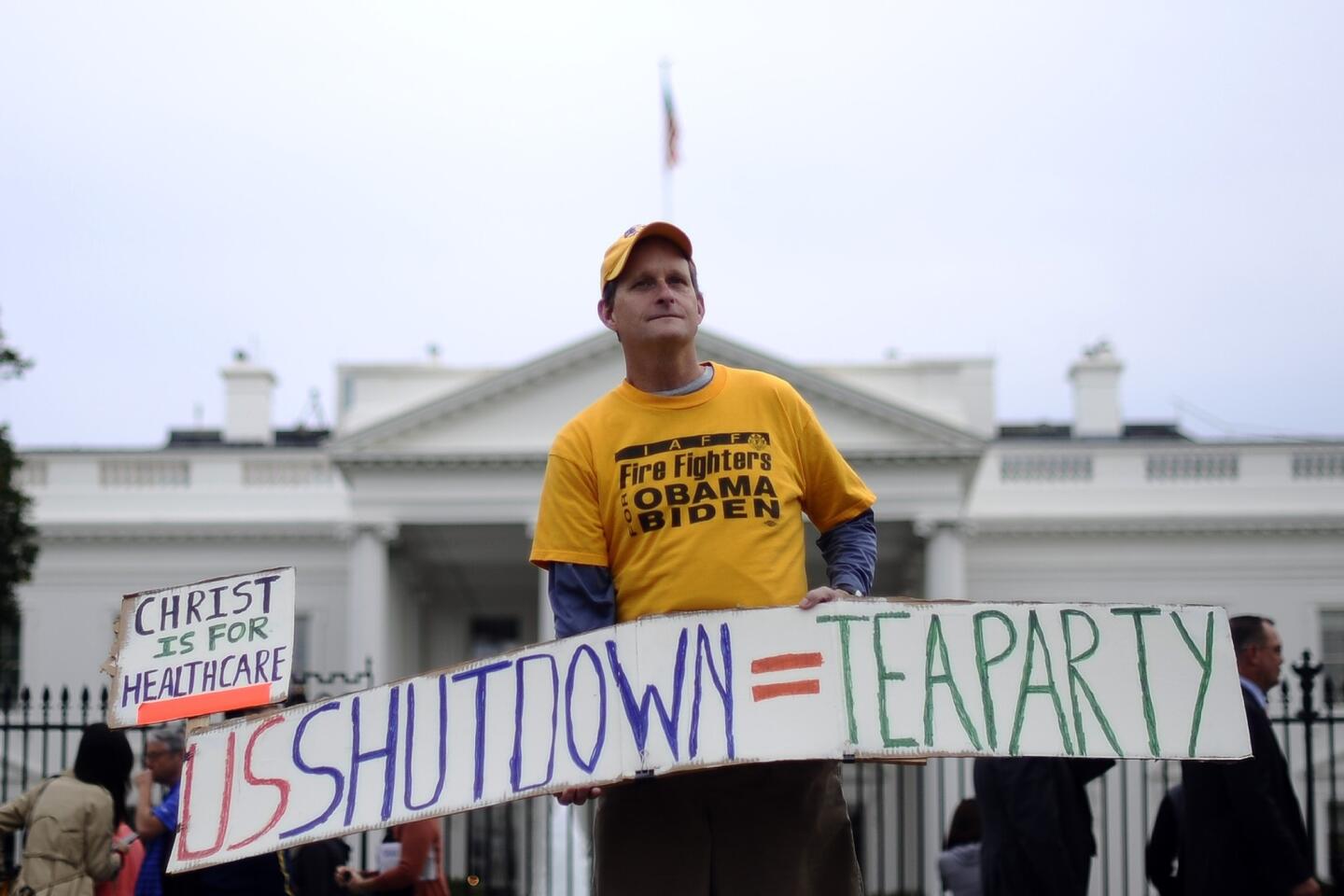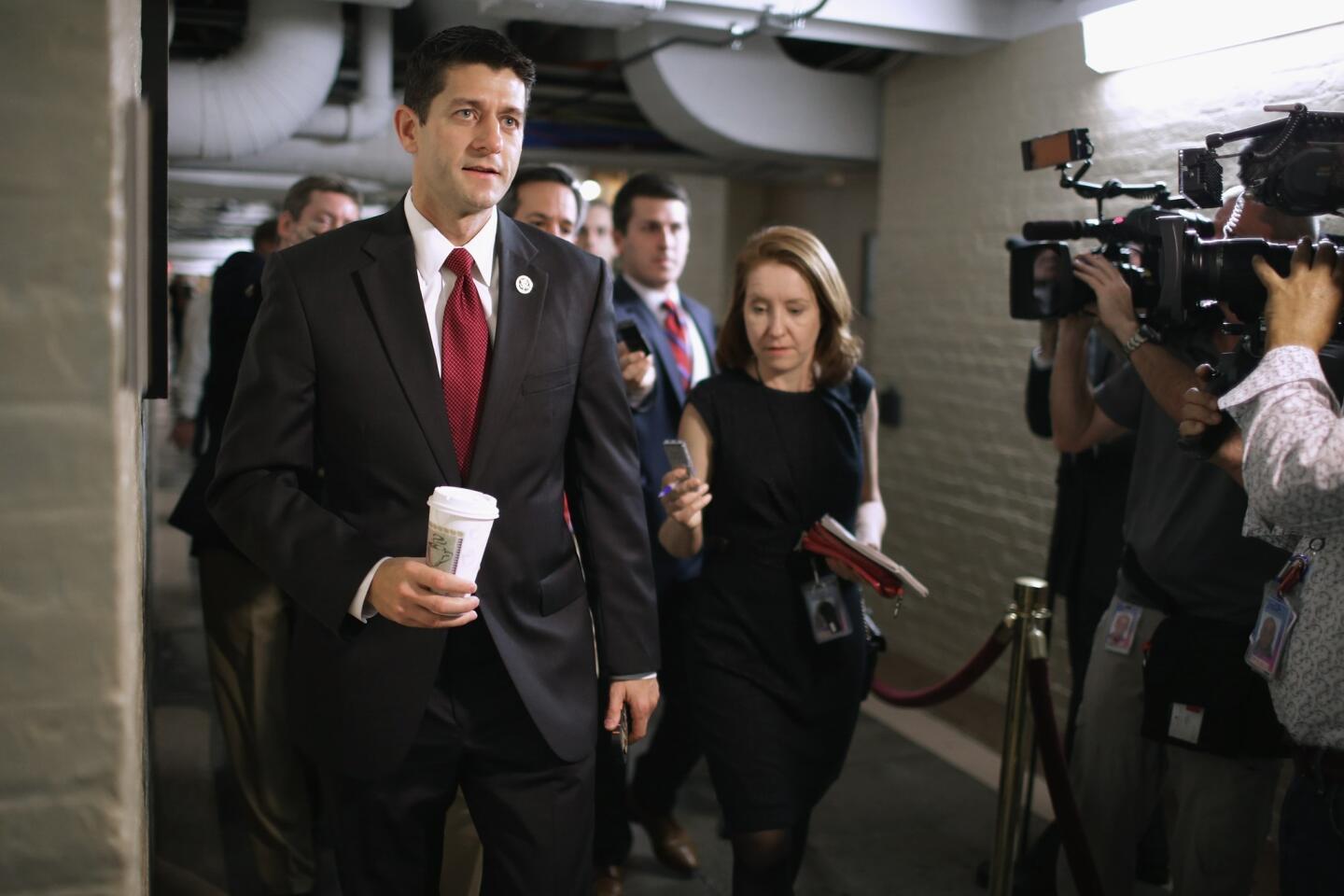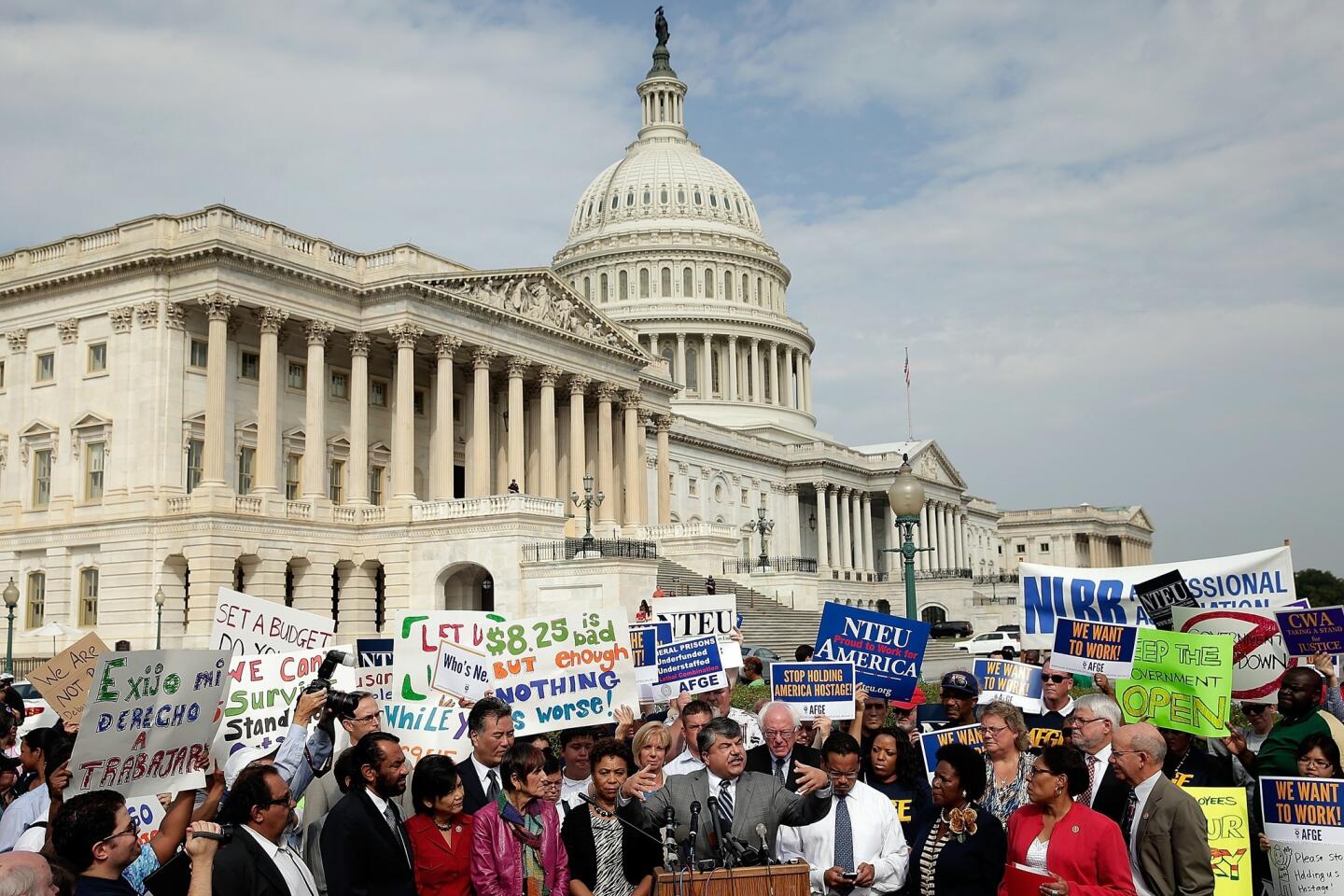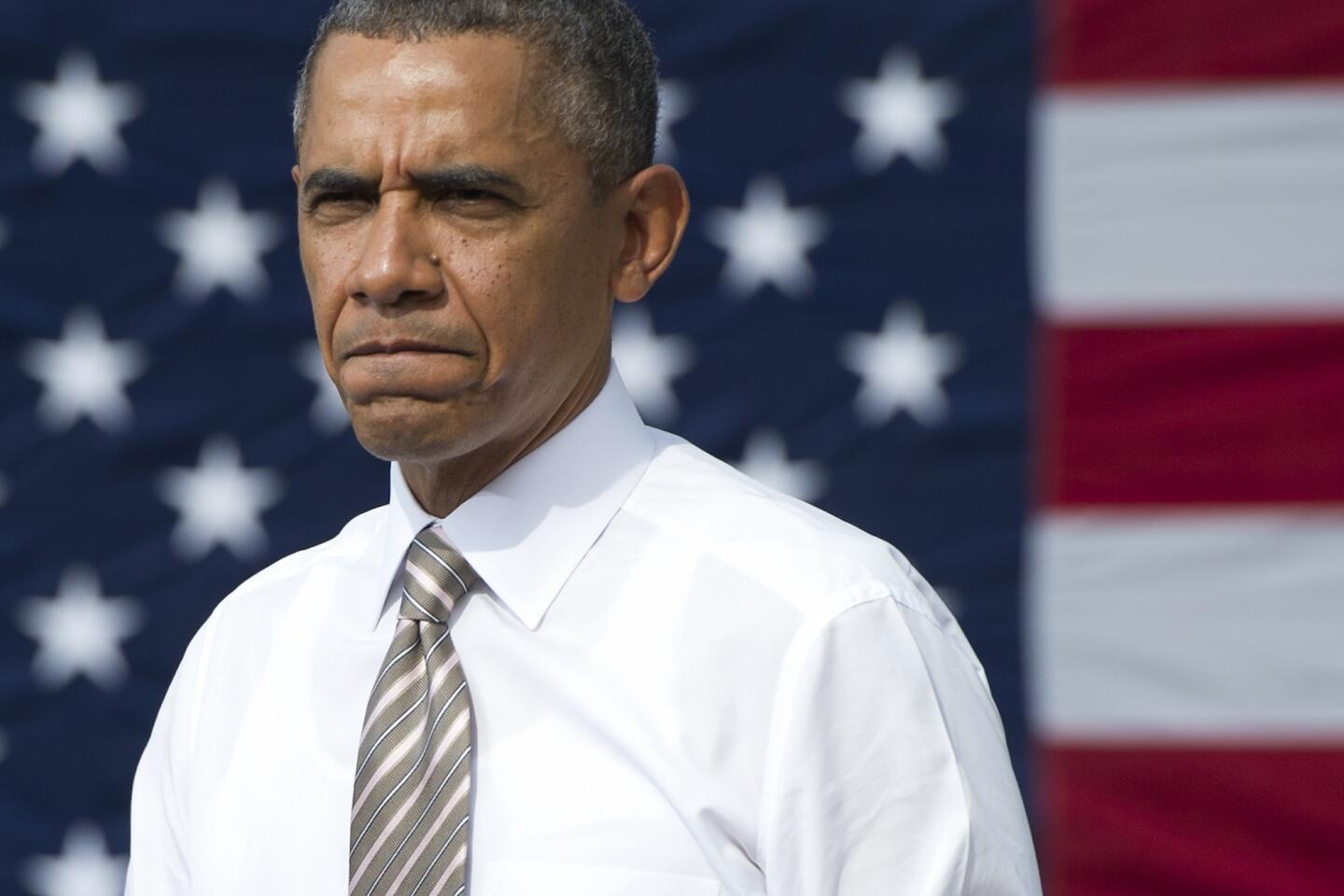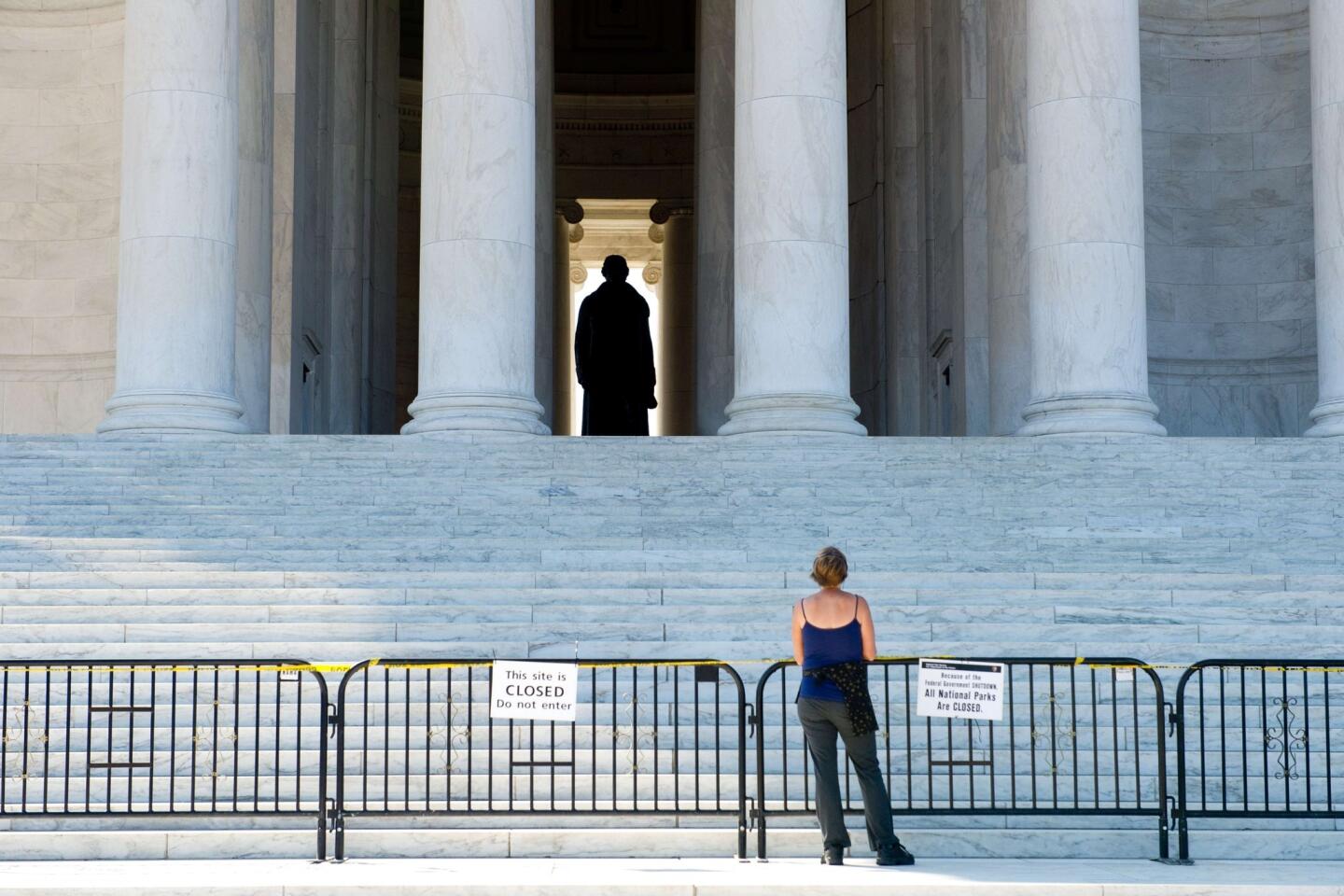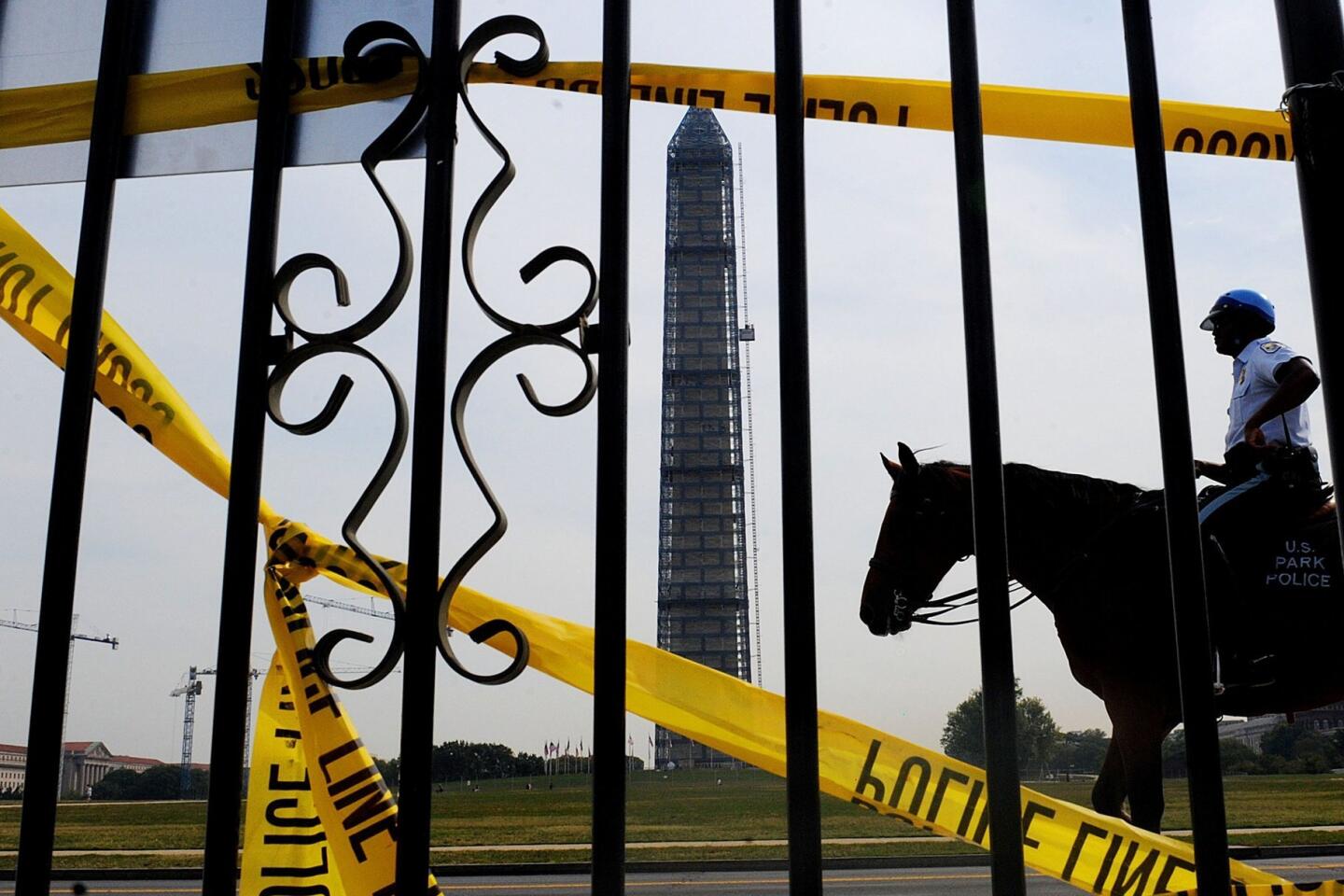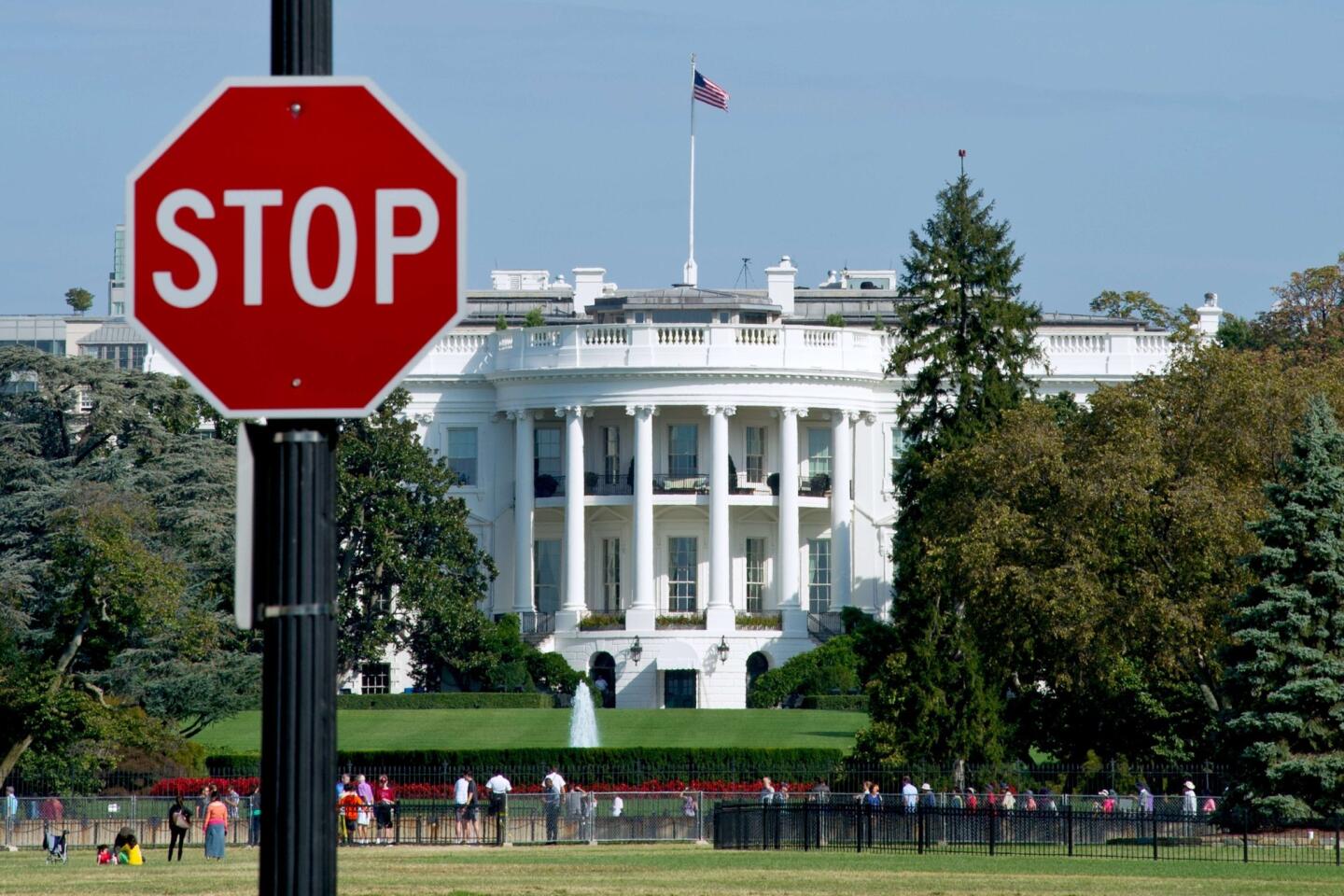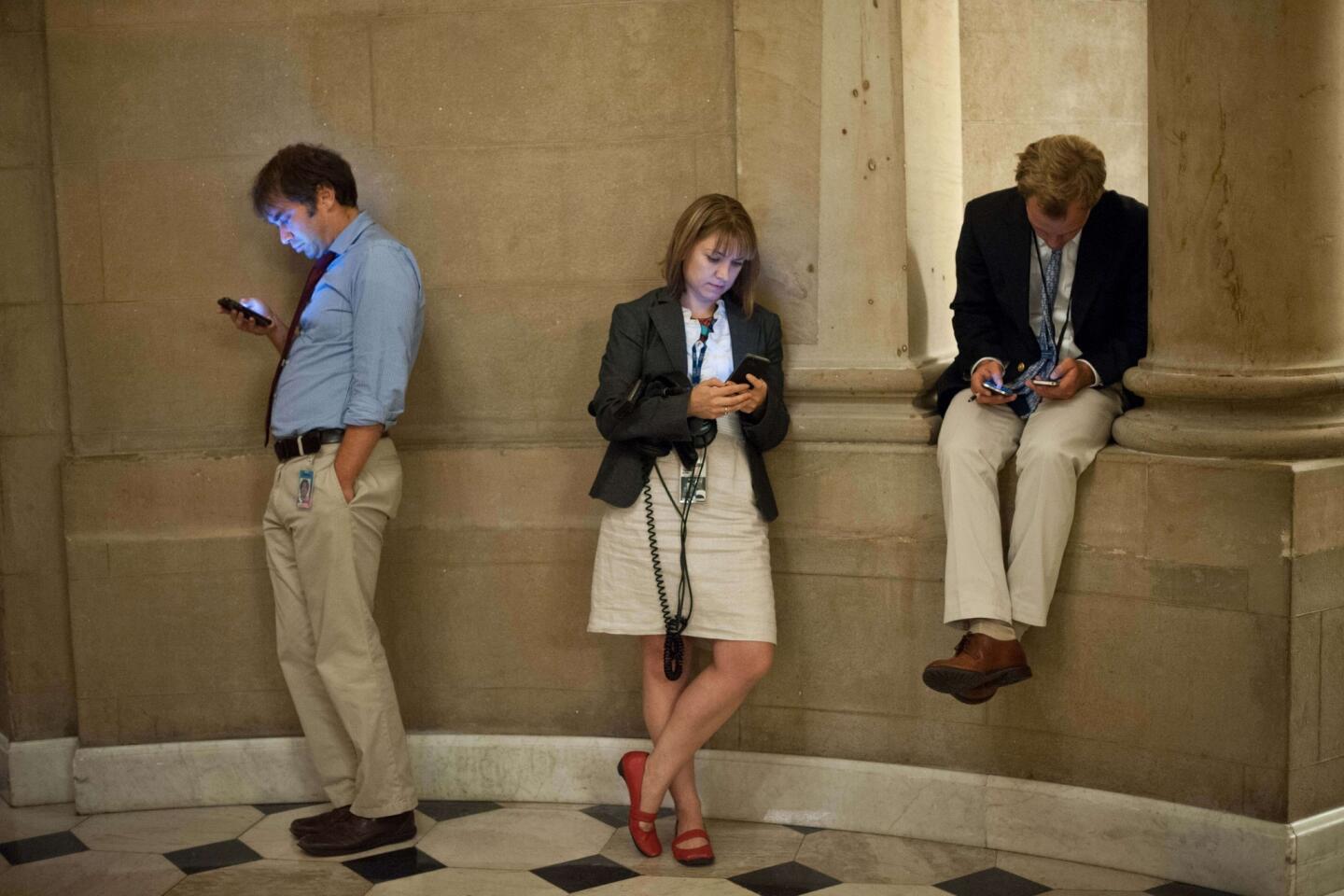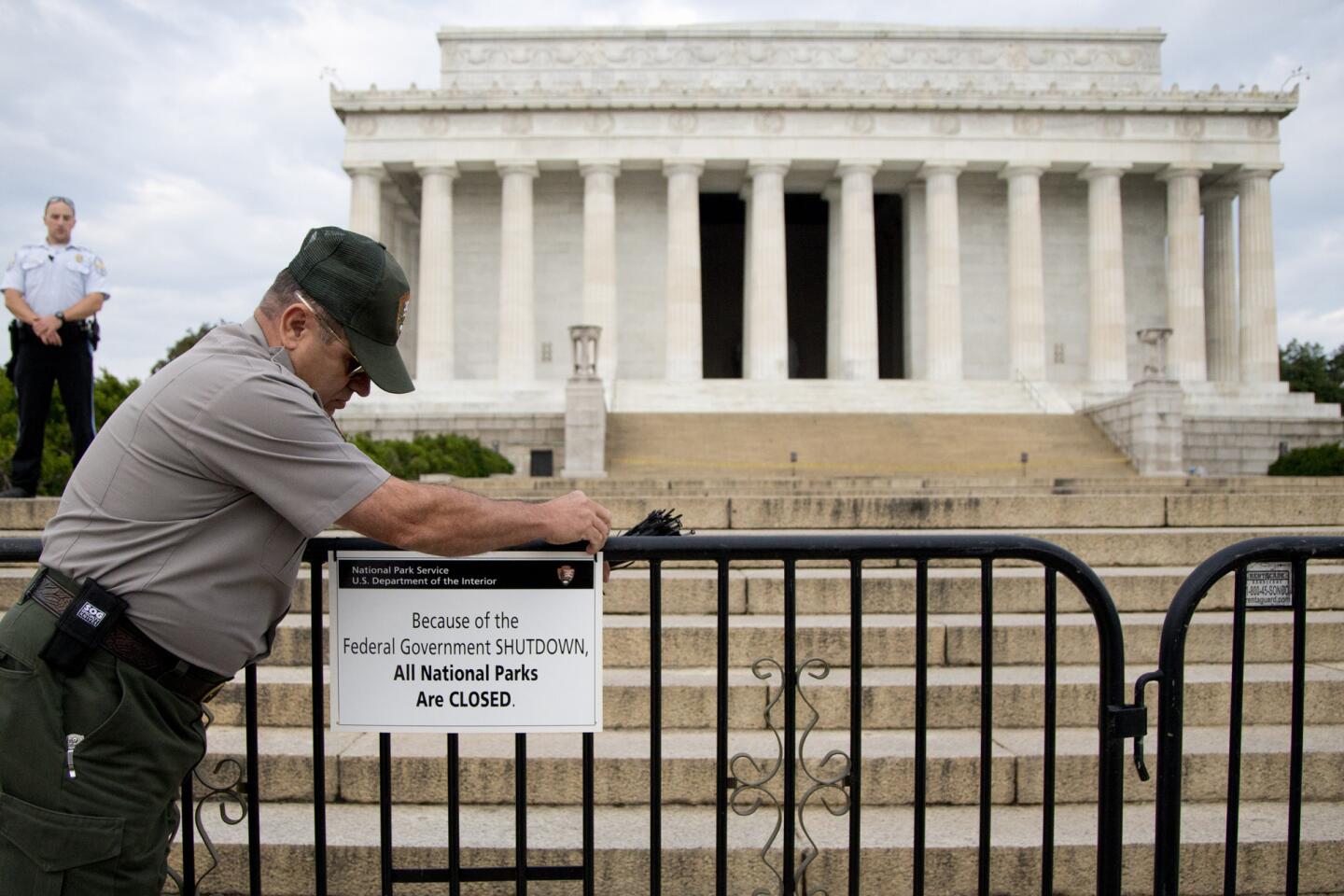GOP plan to extend debt limit raises hope of end to impasse
WASHINGTON — The federal budget standoff moved toward at least a temporary end Thursday as Speaker John A. Boehner announced that House Republicans would agree to extend the government’s borrowing authority for six weeks, setting up late-night negotiations between the White House and Congress.
In announcing his plan, Boehner (R-Ohio) said Republicans no longer would insist on any policy changes in return for allowing the government to continue borrowing. But he did not agree to reopen federal programs that shut down last week.
At a late-afternoon meeting at the White House, where Boehner and other House GOP leaders presented their proposal, President Obama told them that he wanted the government reopened in addition to a solution for the debt ceiling, according to administration officials speaking on condition of anonymity. That put Obama in line with Senate Democrats, who have insisted that both issues be resolved together.
In the meeting, “the president didn’t say yes, didn’t say no,” said House Budget Committee Chairman Paul D. Ryan (R-Wis.). “We’re continuing to negotiate.”
The issue for negotiators is to find something that Boehner could use to help sell Republicans on ending the shutdown but that Obama could also accept, House Appropriations Committee Chairman Harold Rogers (R-Ky.) suggested.
“I think it’s clear that he would like to have the shutdown stopped,” Rogers said, referring to Obama. “We’re trying to find out what it is he would insist upon in a CR and what we would insist upon,” he added, using the legislative jargon for a continuing resolution to fund government agencies.
The president’s healthcare law, which Republicans spent weeks trying to block or delay as a condition of approving any funding bills this fall, was “not discussed,” Rogers said.
The House could vote as early as Friday, but both houses planned weekend sessions. The Treasury Department says the debt ceiling needs to be raised by Oct. 17.
Earlier in the afternoon, Senate Democrats emerged from a meeting with Obama insisting that the shutdown end.
“We want the government opened,” Senate Majority Leader Harry Reid (D-Nev.) said.
Some of the Senate’s more centrist Republicans also expressed support for legislation that would end the shutdown and extend the debt limit.
“We need to do both,” said Sen. Lamar Alexander (R-Tenn.). “The country’s disgusted by this shutdown, and so am I. We need to reopen the government.”
“Both of them have to be resolved,” said Sen. John McCain (R-Ariz.). “It’s not rocket science.”
A vote to end the shutdown could be harder for conservatives than one on the debt limit. But some in the House sounded willing to accept the idea that Boehner would bring to a vote a plan to fund the government, which could pass with the help of the chamber’s Democratic minority.
“If they do something like that — and I’m only speaking for myself — yeah, I would hope that would go to the floor,” said Rep. Tom Cole (R-Okla.), a member of the House Appropriations Committee and former head of the party’s congressional campaign operation. He added that the House would still insist on “real negotiations” in the future.
The prospect that the standoff would end sent markets sharply higher. The Dow Jones industrial average climbed 323.09 points, or 2.2%, for its biggest one-day gain of the year, and other market measures showed similar gains.
For Boehner and his House colleagues, a move to deal with the debt ceiling without concessions would amount to a decision to live to fight another day. Republicans entered this month’s standoff with an ambitious agenda that included blocking or scaling back Obama’s healthcare law, achieving significant changes in environmental and other regulations, and winning spending cuts in retiree-benefit programs.
Boehner and other senior GOP officials and strategists had warned against such sweeping demands, considering them all but certain to fail. But tea-party-backed conservative activists insisted on the crusade.
Ten days after agencies across the government began to close, Republicans find themselves badly divided, at odds with traditional allies in the business community and suffering sharp declines in opinion polls.
A new NBC/Wall Street Journal survey released Thursday evening found that by a 22-point margin, 53% to 31%, the public blames the Republicans for the shutdown more than Obama. Favorable opinions of the GOP have dropped to 24% of the public, an all-time low in the survey, and Democrats have taken a significant lead in a test of which party voters would prefer to see control Congress after the next election.
By contrast, Obama’s approval has ticked up slightly in the survey. Even Obamacare, as the president’s healthcare law is often called, has grown more popular since the budget standoff began, according to the survey, which was conducted by a team of GOP and Democratic pollsters.
In the face of such travails for Republicans, Boehner’s plan would call off the fight in return simply for a promise from Obama to negotiate on budget issues over the next several weeks. Democrats would like to win some easing of the across-the-board spending cuts known as the sequester, which took effect early this year. Republicans would like to reduce spending on Social Security, Medicare and other entitlement programs but have so far been reluctant to specify particular cuts, all of which would probably carry a political price.
If talks failed to reach an agreement, Republicans could, once again, threaten not to vote for a debt-ceiling increase. But having pulled back from the brink this time, their leverage would be lessened.
Obama and other administration officials have warned that failure to raise the debt ceiling could cause severe economic disruption. Thursday, Treasury Secretary Jacob J. Lew warned a Senate panel that “it would be chaos” and that he could not guarantee he could avert a default by paying interest on government bonds if Congress failed to act.
Some Republicans have dismissed those warnings as exaggerations. Others, however, said they had decided to go along with Boehner’s plan in part because of fear of economic disruption.
“You don’t want to mess with that,” said Rep. Marlin Stutzman (R-Ind.). “You don’t want to mess with people’s 401(k)s.”
Not all House conservatives appeared ready to follow that path.
“I think everybody is going to have to take a few hours,” said Rep. Matt Salmon (R-Ariz.). The notion of approving a short-term debt limit deal without winning policy concessions is “a pretty out-of-the-box kind of idea from where we’ve been,” he said. “It’s going to take everybody kind of noodling on it a little bit.”
But some key outside groups on the party’s right wing indicated they would not oppose the vote, and other conservatives seemed willing to go ahead. Rep. Raul R. Labrador (R-Idaho), a leader among recently elected conservative lawmakers, said the proposal would help Republicans because it would separate the threat of a default from the fight over Obamacare.
For the party’s more centrist members, who have argued all along that the conservative strategy was a loser, Boehner’s proposal came as vindication.
Members of the House were “realizing government by crisis is not good, and we need a focus,” said Rep. Tom Reed (R-N.Y.). “Sometimes you have to work real hard to listen to the quiet majority and not be governed by the loud minority.”
Earlier in the day, the House passed a stopgap bill to restore federal funding for border security. The vote was the latest in a series by House Republicans since the shutdown began to provide money to government functions that they favor.
The Senate, so far, has shelved nearly all such bills, insisting on a full reopening of government services, but unanimously agreed Thursday to one that would ensure families of military troops are paid death benefits. Obama signed it.
The administration also agreed to allow national parks to reopen in states that agreed to pay for park operations.
michael.memoli @latimes.com
Brian Bennett, Kathleen Hennessey, David Lauter and Christi Parsons in the Washington bureau contributed to this report.
More to Read
Sign up for Essential California
The most important California stories and recommendations in your inbox every morning.
You may occasionally receive promotional content from the Los Angeles Times.

